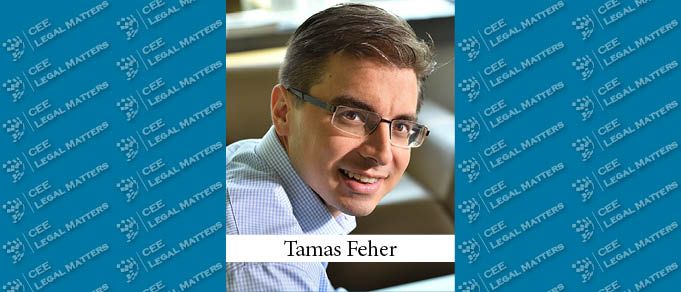Jalsovszky's Dispute Resolution practice in Hungary is going from strength to strength according to Partner Tamas Feher, who points to long cases, significant wins, fiscal changes, budgetary pressures, and the economy's slowdown as the ultimate reasons behind their litigators staying busy.
CEELM: What kind of work has been keeping you busy in the last 12 months?
Feher: As with many legal practices, our cases often extend beyond a year, and a significant portion of our current workload consists of ongoing matters. One recent case that showcases the breadth of our services is our representation of Wizzair in a landmark dispute against the 18th District Municipality of Budapest. This case challenged the municipality’s attempt to impose a local passenger tax, which they believed to be an innovative way to raise revenue. The challenge arose because the Hungarian International Airport partially falls within the jurisdiction of the 18th District, and the municipality felt they could tax passengers using the airport. We successfully argued before the highest court in Hungary that the municipality lacked the authority to impose such taxes, setting a precedent that impacts all airlines operating in Hungary. This is just one example, and Wizzair has entrusted us with other cases as well.
Beyond this, we’ve recently concluded other successful cases, including a major tax dispute for a leading telecom company (lasting over seven years) and a construction dispute for another key client. We’re also currently representing a client before the European Court of Justice in a VAT case concerning a Slovakian company’s denied VAT reimbursement in Hungary. This case is on a promising track following a favorable opinion from the Advocate General. The past year has also witnessed an increase in arbitration cases, reflecting a broader trend towards alternative dispute resolution.
Another notable trend is the rise in tax-related cases, often accompanied by criminal charges against companies, likely driven by the state of the Hungarian budget, particularly regarding VAT collection challenges. This aggressive approach from the authorities necessitates a multidisciplinary approach, leveraging our expertise in both criminal and tax law. These cases can be particularly complex as companies may face both tax liabilities and criminal charges. The potential consequences can be severe, including significant financial penalties, investigations against individuals with the risk of jail time, and even preliminary measures that can severely impact a company’s operations before the case is even concluded.
CEELM: What are the key factors driving that pipeline of work?
Feher: Our workload has been heavily influenced by the Hungarian government’s recent fiscal policies, particularly its response to the VAT revenue shortfall. This has led to a more aggressive approach to tax collection, resulting in a significant increase in tax disputes, many of which also involve criminal charges for tax evasion. This dual threat has made these cases particularly complex, highlighting the need for a comprehensive legal strategy encompassing both the fiscal and criminal aspects.
Furthermore, the current economic climate has contributed to a record number of forced liquidations, indicating underlying financial instability. There seems to be something “boiling underneath” for the Hungarian economy that’s not reflected in growth or GDP figures. However, the rising number of companies going out of business suggests significant economic strain. This situation leads to a surge in disputes related to payment defaults – early risk assessments and strategic planning are crucial to protect our clients’ interests in such situations.
And the labor market has also been impacted, with an increase in disputes arising from layoffs and employment terminations, reflecting the broader economic pressures on businesses. Even the IT sector, despite its growth, has not been immune to disputes, particularly regarding contract performance issues. Some experts suggest this rise might be linked to the sector’s rapid growth, making it harder to distinguish between reliable and unreliable players. This, in turn, can lead to disputes when expectations and deliverables don’t align in such a fast-paced environment.
CEELM: And what is your outlook for the next 12 months?
Feher: We anticipate a continued rise in our workload, driven by both internal and external factors. The expansion of our Dispute Resolution practice, exemplified by the recruitment of senior litigator Peter Szilas, demonstrates our continuing focus on building our expertise and capabilities.
Finally, looking at all of the current trends, it seems like there will be ample work to be done: rising numbers of liquidations, labor disputes, and litigation proceedings in the IT sector are likely going to keep us quite busy as the year progresses.

















